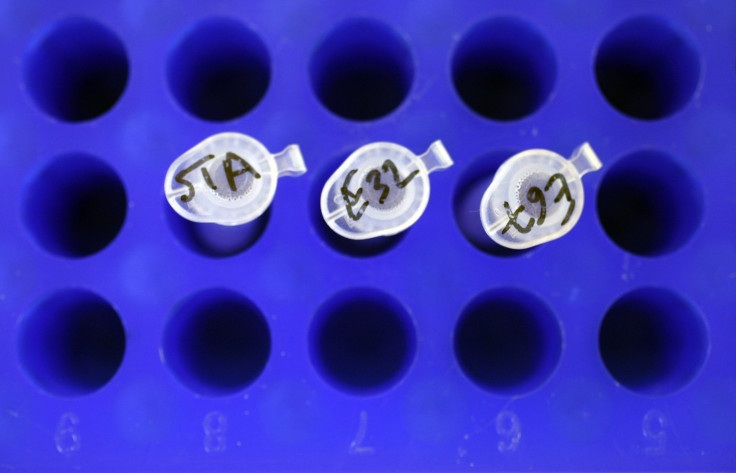Are Boogers Good For Your Immune System? Researchers Think It Can Treat Staph Infections

You may really be digging for gold when you’re picking your nose, according to a new study published in Nature. The study found that a bacterium originating in mucus can be used to develop an antibiotic against Staph infections. Known as Saphylococcus lugdunensis, the antibiotic-producing bacterium may help researchers develop medicines for Toxic Shock Syndrome, skin infections, and food poisoning.
Your nose is known to be the body's first line of defense against bacterial infection, as nose hairs and mucus act as traps and filters for air pollutants and microbes. But the new study's finding is quite remarkable: This is the first time scientists have discovered a bacterium naturally-occurring in the human body that possesses antibiotic features. Most antibiotics today are made from bacteria or fungi found in soil.
“This is of great importance as, to date, no bacteria from the human body has been able to produce such compounds,” said Bernhard Krismer, a lead author of the study, in a press release. The antibiotic developed is referred to as Lugdunin, and so far it has proven to be capable of destroying even antibiotic-resistant strains of Staphylococcus aureus, the bacteria behind Staph infections.
In the study, the researchers took and analyzed nasal swabs from 187 hospitalized patients. They found that 30 percent of the patients carried S. aureus, and about 9 percent carried S. lugdunensis, the antibiotic bacterium. Patients who carried the antibiotic bacterium were far less likely to have Staph bacteria in their noses; only about 5.9 percent of them had Staph, compared to 34.7 of patients who did not have the antibiotic bacterium.
In a second experiment, the researchers isolated the antibiotic bacterium and tested it on mice who had Staph skin infections. The majority of Staph cases were cleared after Lugdunin was administered. In future studies, the researchers hope to experiment with humans to see if results are similar.
Amid the rise of antibiotic-resistant “superbugs,” scientists are scrambling to develop new drugs that can suppress infections and battle quickly mutating bacteria. The researchers of the latest study hope that Lugdunin may work in the future as a new treatment against antibiotic-resistant strains of Staph. But first, Krismer said that "it is very important to reduce the amount of prescribed antibiotics, to sparingly use last resort antibiotics, and to dramatically reduce the amount of antibiotics in animal breeding." And for the time being, rest assured that your nose is looking out for you; your boogers may be gross, but they're there for a reason.
Source: Zipperer A, Konnerth M, Laux C, Berscheid A, Janek D, Weidenmaier C. Human Commensals Producing a Novel Antibiotic Impair Pathogen Colonization. Nature , 2016.



























